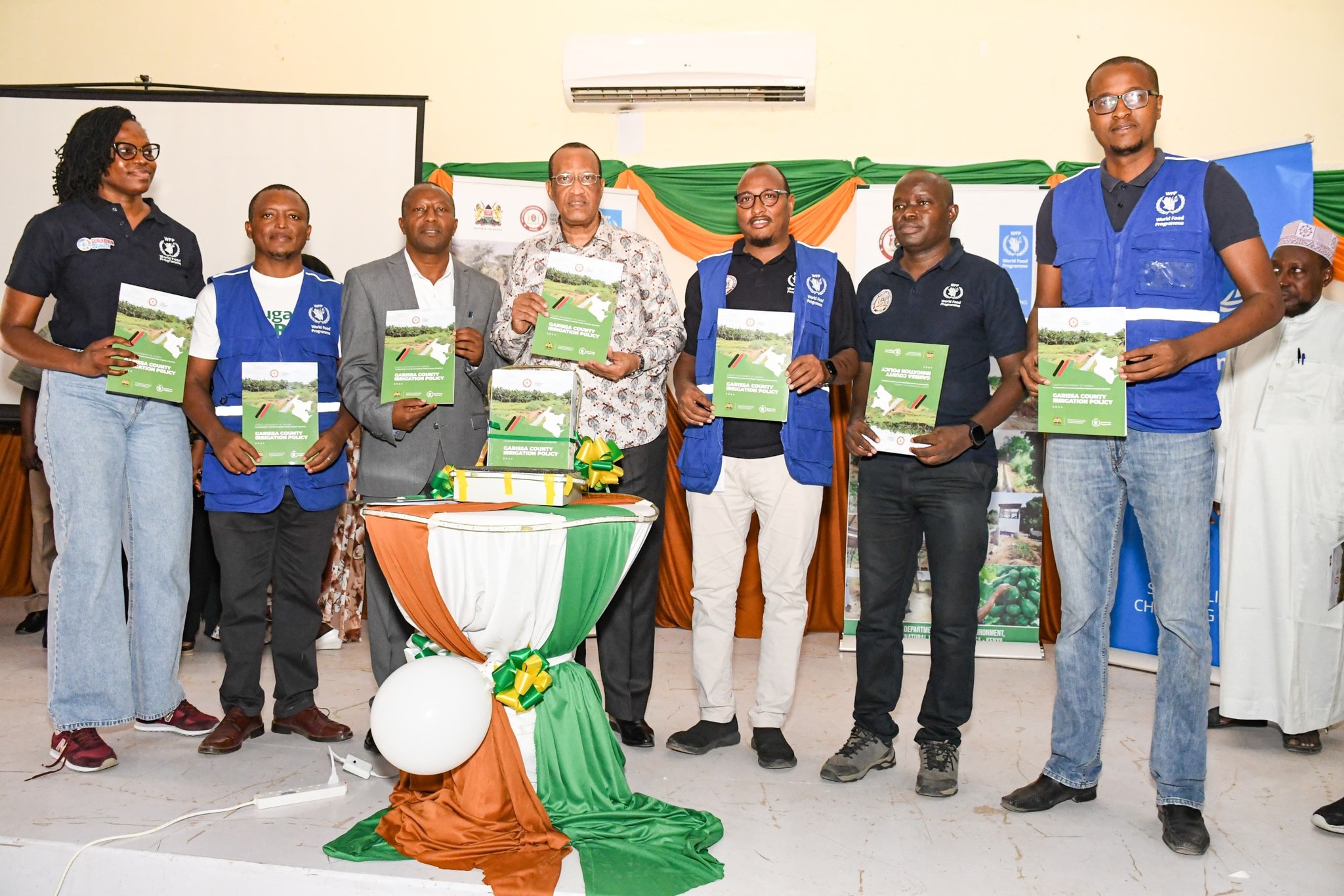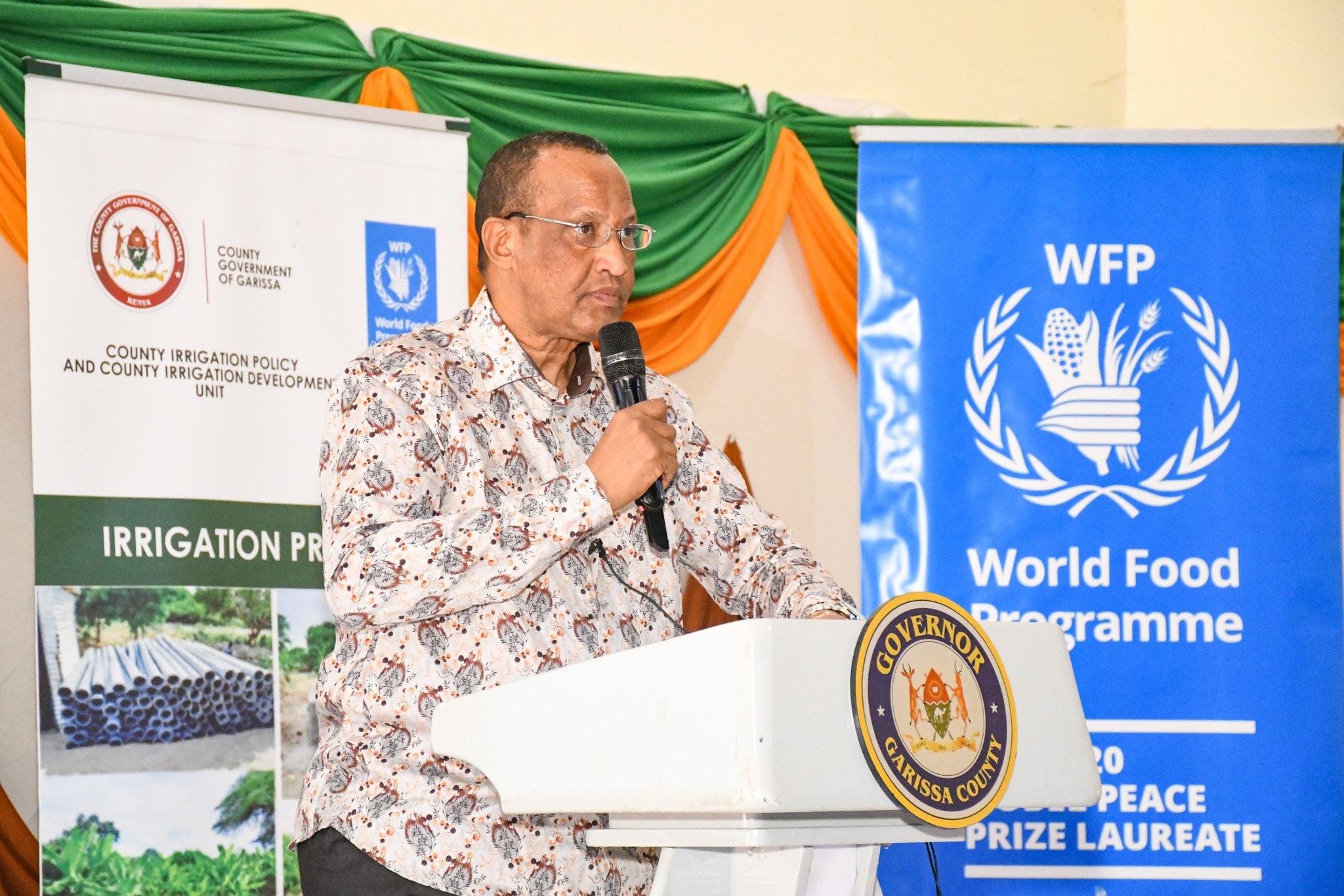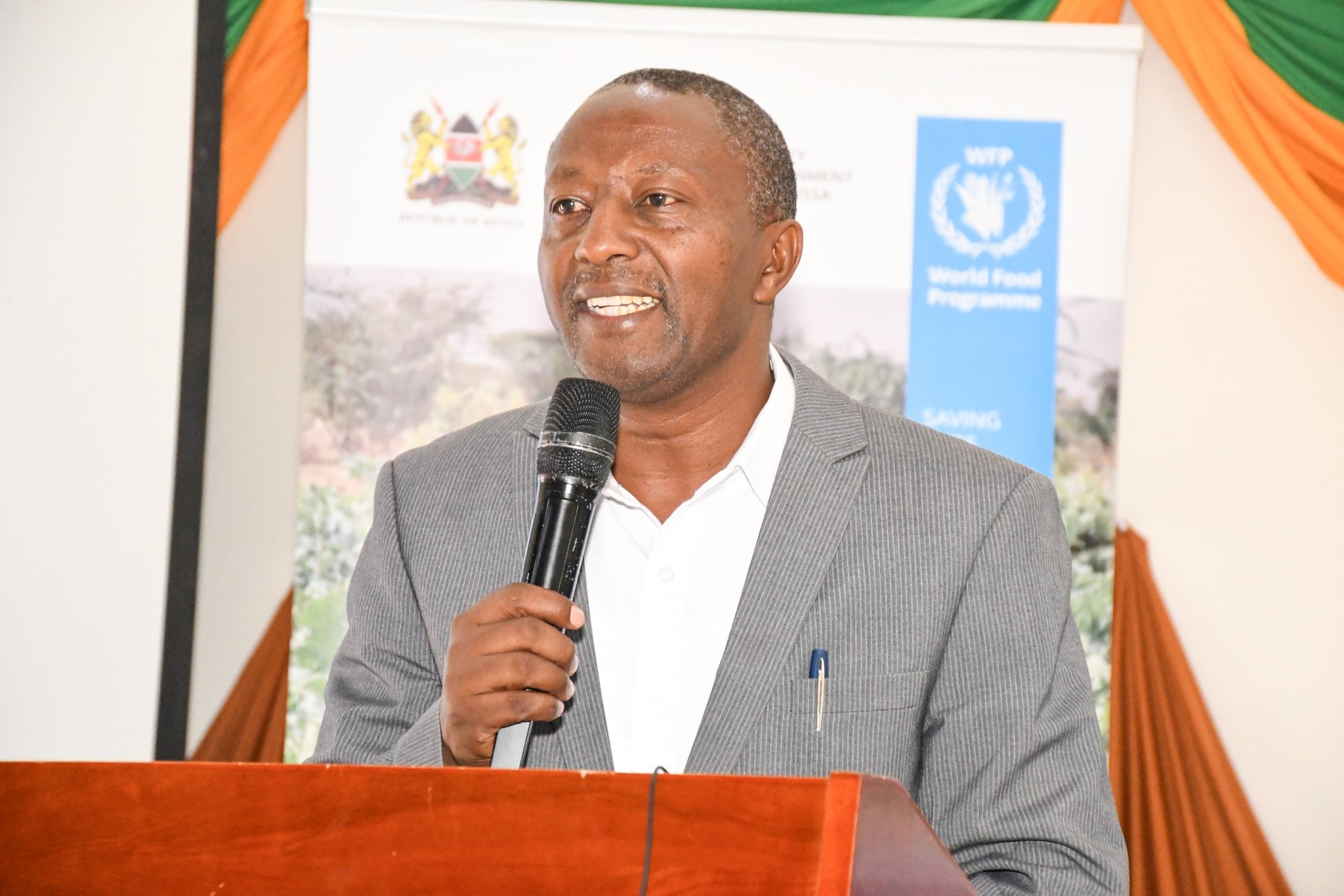
Garissa county hospital goes digital, automates services
CEO Salah says move will improve patient flow, accountability and data for planning
The initiative is expected to build resilience to climate change, and spur economic development
In Summary
 Garissa Governor Nathif Jama and other senior officials hold
the County irrigation policy development document./STEPHEN ASTARIKO
Garissa Governor Nathif Jama and other senior officials hold
the County irrigation policy development document./STEPHEN ASTARIKO Garissa Governor Nathif Jama speaking during the launch of
the launch of the irrigation policy development./STEPHEN ASTARIKO
Garissa Governor Nathif Jama speaking during the launch of
the launch of the irrigation policy development./STEPHEN ASTARIKO Ngumi Kani, Director Quality Assuarance and Licensing for
National Irrigation Authority speaking during the launch of the irrigation policy development document at a Garissa hotel./STEPHEN ASTARIKO
Ngumi Kani, Director Quality Assuarance and Licensing for
National Irrigation Authority speaking during the launch of the irrigation policy development document at a Garissa hotel./STEPHEN ASTARIKO
Garissa County has launched a comprehensive irrigation policy and established the County Irrigation Development Unit (CIDU), a move aimed at transforming the region’s agriculture through sustainable irrigation.
The initiative is expected to enhance food security, build resilience to climate change, and spur economic development.
The policy, developed with support from the World Food Programme (WFP), outlines a roadmap to expand irrigated farmland, improve water-use efficiency, and attract private sector investment.
It also seeks to strengthen infrastructure and create an enabling legal and regulatory framework for irrigation development.
Speaking at the launch, Governor Nathif Jama said the policy marks a turning point for the region’s agricultural sector.
“This policy document will accelerate the vision of having a vibrant, innovative, and commercially oriented irrigation sector,” said Jama.
“The main aim is to help Garissa County and its partners design and implement high-impact programs that deliver sustainable irrigation for food security.”
He noted that while Kenya has significant potential for irrigation farming, much of it remains untapped. In Garissa alone, 761,000 hectares of land are suitable for irrigation, yet only 32,000 hectares are currently in use along the Tana River.
“We believe River Tana is very important to us, but it can only give us 32,000 hectares. The rest—over 729,000 hectares—lies inland and can be irrigated using underground water,” he explained.
Governor Jama emphasized the importance of collaboration with the national government, which shares responsibility for irrigation under the Constitution.
He also highlighted areas such as Gababa in Ijara, Fafi, and Waso plains as having high potential for irrigation development.
He stressed the need to establish a solid legal and institutional framework, support innovation and research, and adopt modern technology in line with the new policy.
“The work starts now,” said the governor.
“We will work with the national government, WFP, the Garissa farmers’ network, and other partners to implement this vision.”
However, he raised concerns about recurring floods, which have historically destroyed farms and livelihoods.
“We may have all the plans for irrigation, but if every heavy rain destroys our farms, then our ambitions will be wasted,” he said.
Jama urged the national government to prioritise flood mitigation, suggesting interior canals could be used to redirect excess water.
Ngumi Kani, Director of Quality Assurance and Licensing at the National Irrigation Authority, praised Garissa for being the first county to align its irrigation policy with the national framework.
“Many counties will come here for benchmarking,” he said. “You now need to mobilize resources, engage the county assembly, and bring in development partners to bring this policy to life.”
He stressed the need to improve water storage and harvesting, especially in arid and semi-arid regions that make up 80 percent of the country.
WFP’s regional head, Yussuf Ali, echoed the call for empowering local farmers and making full use of the region’s arable land.
“Garissa can feed not just its own people, but also support neighbouring regions—if we stay committed to boosting agricultural productivity,” Ali said.
He reaffirmed WFP’s support for broader development goals, including food security, economic transformation, and climate resilience.

CEO Salah says move will improve patient flow, accountability and data for planning